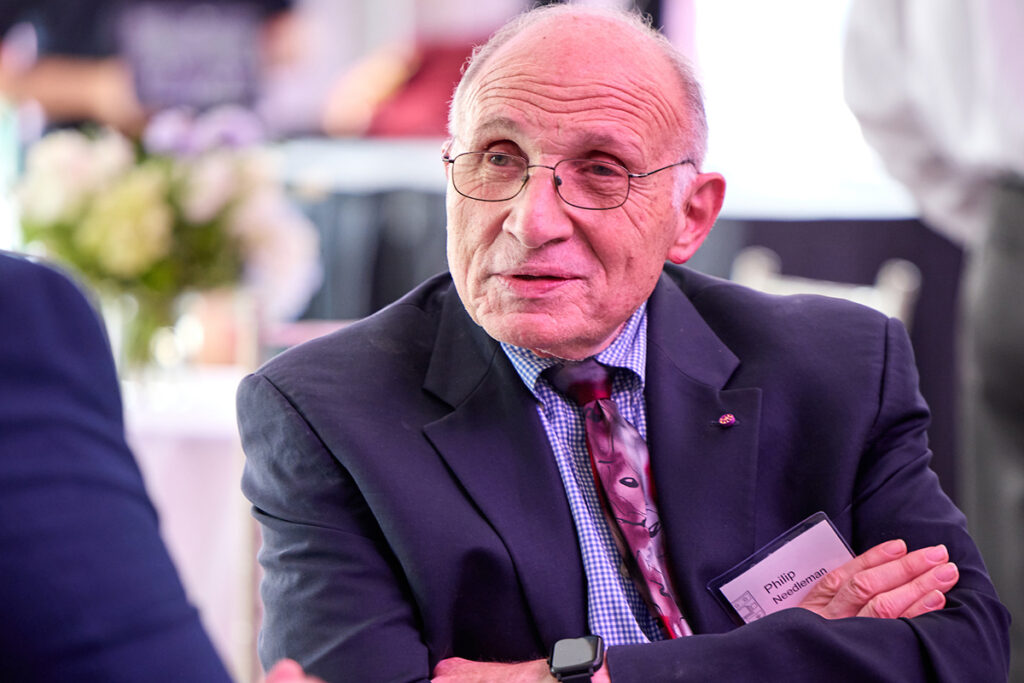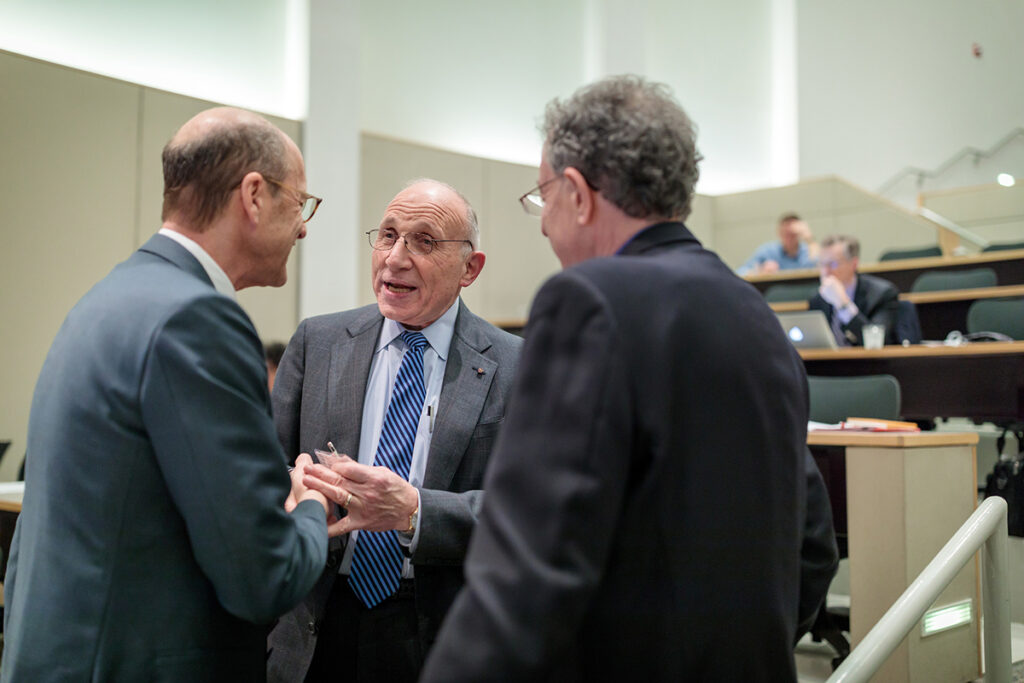
Philip Needleman, a Washington University in St. Louis emeritus trustee, longtime benefactor and former department head at the School of Medicine, died in an accident Monday, March 25, 2024, in Creve Coeur, Mo. He was 85.
“Phil was a pioneering pharmacologist, an esteemed faculty member and a generous benefactor whose impact on our university and the world of drug discovery cannot be overstated,” Chancellor Andrew D. Martin said. “His legacy will endure through the countless lives he has touched.”
Needleman’s connection to the university began 60 years ago when he became a postdoctoral fellow at the School of Medicine. He quickly rose to professor and later head of the Department of Pharmacology from 1976-1989, where he developed innovative programs for students and launched a master’s program.
An expert in prostaglandin regulation, Needleman and his colleagues in the School of Medicine made key discoveries in the 1980s about the roles of the COX-1 and COX-2 enzymes that play a key role in pain and inflammation due to arthritis.
In 1989, he became chief scientist at Monsanto, where he led the development of the arthritis medication Celebrex, which blocks the inflammation driven by COX-2. The drug has improved the lives of millions of people worldwide. Later, he served as president of Searle Research and Development and then senior executive vice president after Monsanto merged with Pharmacia & Upjohn.
He remained closely tied to the university during this time, serving on the Board of Trustees beginning in 2002 and the Barnes-Jewish Hospital board. Needleman returned to the School of Medicine in 2004 when he was named associate dean and assisted with BioMed 21, the university’s innovative research initiative designed to speed scientific discovery and to rapidly apply breakthroughs to patient care.
“Phil Needleman will long be remembered as one of the giants of science that walked the halls of Washington University School of Medicine,” said David H. Perlmutter, MD, the George and Carol Bauer Dean of the School of Medicine and executive vice chancellor for medical affairs. “In addition to his accomplishments from his laboratory in the Department of Pharmacology and then in industry, he had enormous impact as a philanthropist and uniquely inspiring mentor. We will dearly miss him every day.”

Needleman served as a board member and interim president of the Donald Danforth Plant Science Center and as board member and interim president of the Saint Louis Science Center.
He also was named special adviser at Ben Gurion University in Israel for creating the National Institute of Biotechnology of the Negev. His work included new concepts about genetic medicine and using the Bedouin gene pool as the basis of this research.
He received many accolades for his work, including WashU’s Distinguished Faculty Award five times and an honorary Doctor of Science and the School of Medicine’s Second Century Award. He was elected to the National Academy of Sciences in 1987 and to the academy’s Institute of Medicine in 1993.
Needleman and his wife, Sima, generously established the Philip and Sima Needleman Center for Autophagy Therapeutics and Research and the Philip and Sima Needleman Center for Neurometabolism and Axonal Therapeutics in 2019. Autophagy is a vital cellular waste recycling system that has been implicated in many processes that affect health, including aging and cancer. The other center focuses on the metabolism of neurons and how that impacts the health of the nervous system.
The Needleman Program in Innovation and Commercialization launched in 2023 to foster drug development and to help the university attract and retain exceptional faculty. It aims to bridge the gap between identification of promising therapeutic targets in the lab and the start of clinical trials to evaluate potential drugs’ safety and effectiveness.
The couple received the Eliot Society’s “Search Award” in 2011 and the Robert S. Brookings Award in 2019 for their extraordinary dedication to the university. They have been members of the Danforth Circle Chancellor’s Level and life patrons of the Eliot Society.
Needleman earned his bachelor’s and master’s degrees in pharmacology from the Philadelphia College of Pharmacy and Science. He earned a doctorate in pharmacology from the University of Maryland School of Medicine.
In addition to his wife, Needleman is survived by his children, Nina and Larry (Lisa); his brothers, Paul Needleman and Alvin Needleman; a sister, Arlene Robbins; and two grandsons.
A funeral service was held April 1 at Berger Memorial. Memorial contributions are suggested to the Needleman Program in Innovation and Commercialization or to Network for Strong Communities.
Read more about his life in the family obituary.